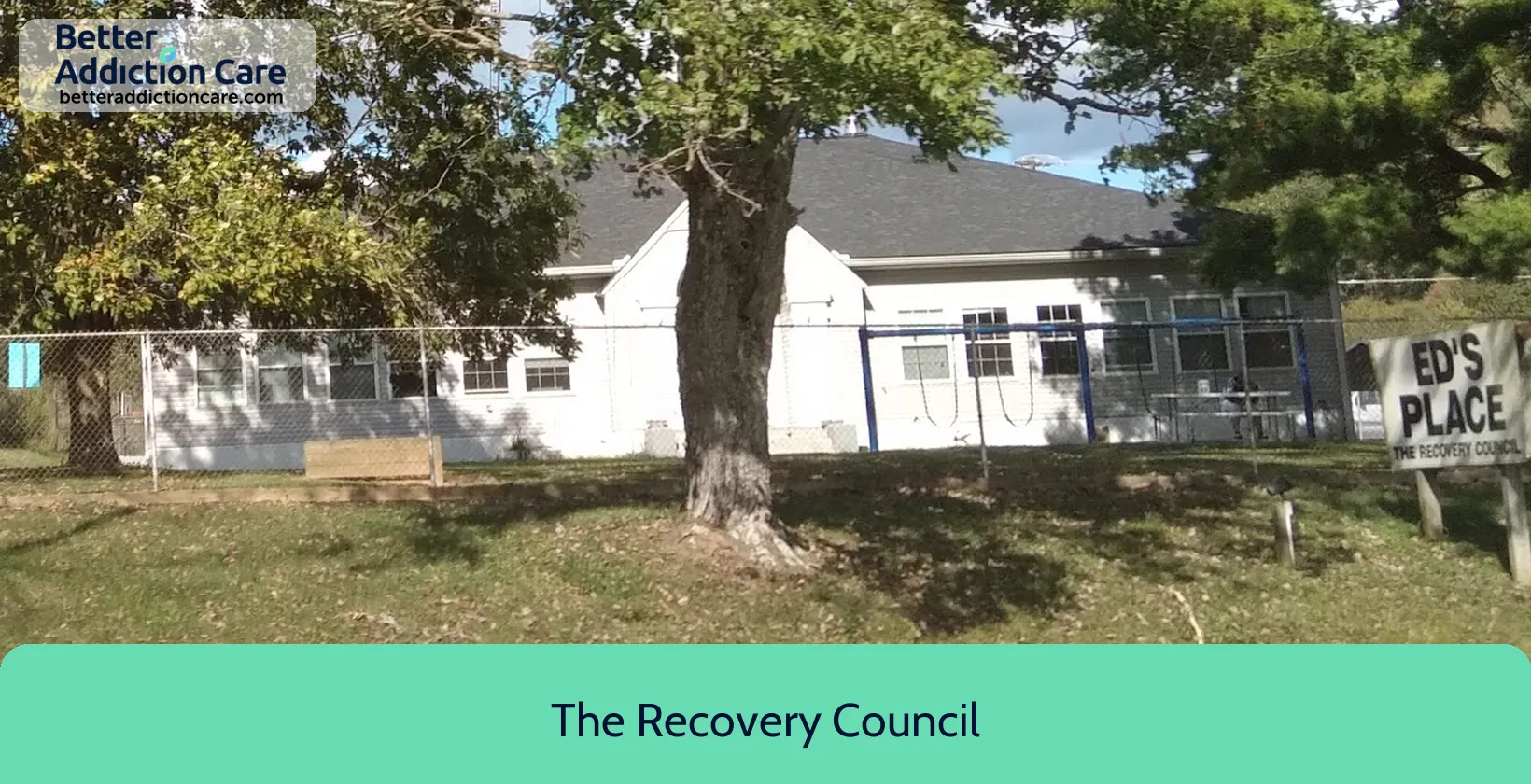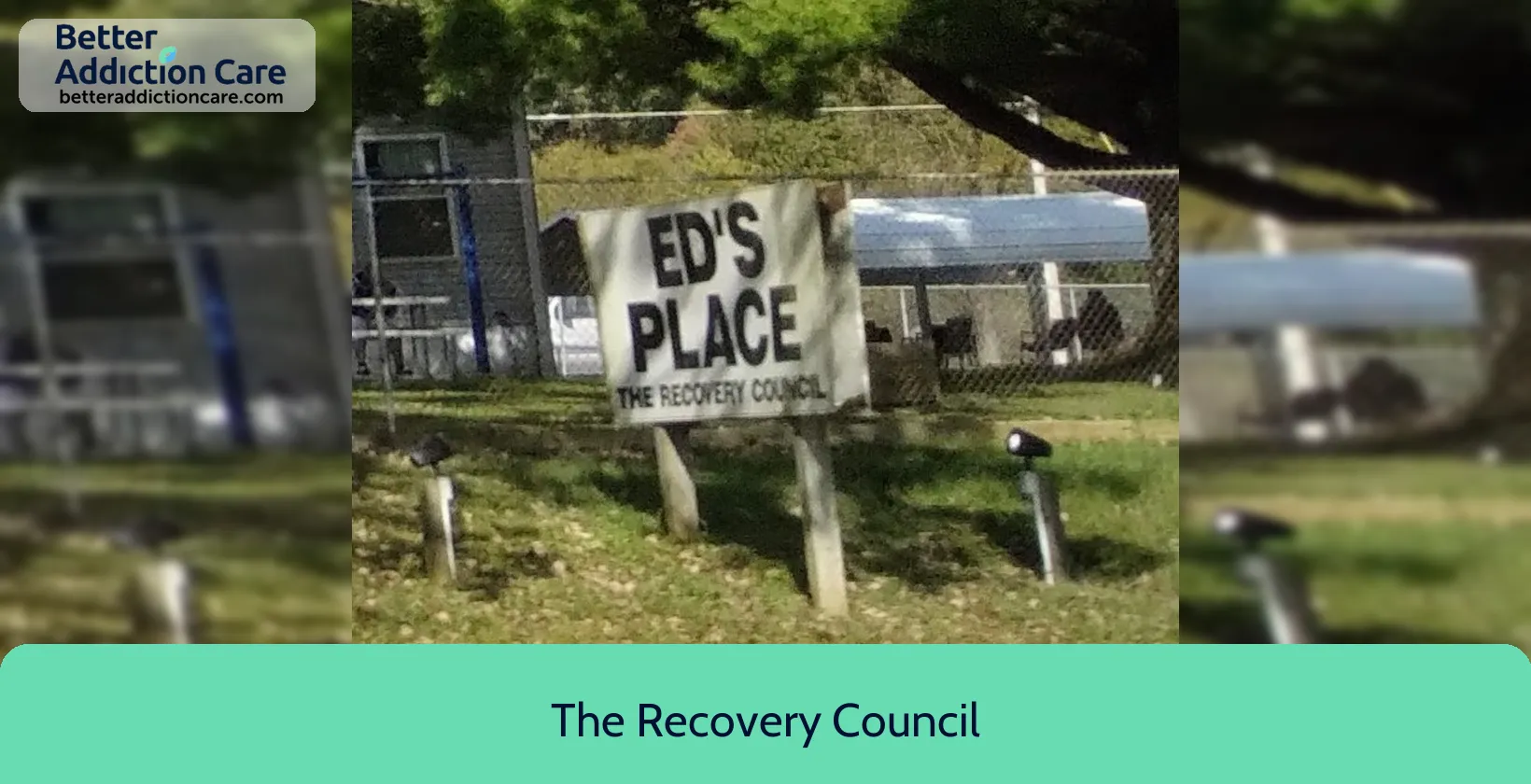The Recovery Council
Overview
The Recovery Council is a substance abuse treatment center for people seeking treatment near Pike County. As part of their treatment modalities for recovery, The Recovery Council provides 12-step facilitation, group counseling, and family counseling during treatment. The Recovery Council is located in Waverly, Ohio, accepting medicaid for treatment.
The Recovery Council at a Glance
Payment Options
- Medicaid
- Private health insurance
- Cash or self-payment
- State-financed health insurance plan other than Medicaid
- Sliding fee scale (fee is based on income and other factors)
Assessments
- Comprehensive mental health assessment
- Comprehensive substance use assessment
- Interim services for clients
- Screening for substance use
Age Groups
- Adults
- Children/adolescents
- Young adults
Ancillary Services
- Case management service
- Suicide prevention services
- Domestic violence services, including family or partner
- Mental health services
- Social skills development
Highlights About The Recovery Council
7.11/10
With an overall rating of 7.11/10, this facility has following balanced range of services. Alcohol Rehabilitation: 8.00/10, Drug Rehab and Detox: 6.62/10, Insurance and Payments: 6.00/10, Treatment Options: 7.82/10.-
Alcohol Rehabilitation 8.00
-
Treatment Options 7.82
-
Drug Rehab and Detox 6.62
-
Insurance and Payments 6.00
Accreditations
Commission on Accreditation of Rehabilitation Facilities (CARF):

CARF accreditation is a prestigious recognition for rehabilitation and human service organizations. It signifies that an organization meets high-quality standards and is committed to providing top-level care. CARF conducts rigorous evaluations to ensure compliance, enhancing an organization's credibility and reassuring clients and funders of exceptional service quality. This accreditation promotes excellence and continual improvement in the rehabilitation and human services field.
State mental health department:
State mental health department accreditation refers to the process of evaluating and certifying the quality and standards of a state's mental health department, ensuring that it provides high-quality services and meets specific criteria for mental health care. The accreditation process is performed by a third-party organization and helps to improve the overall care and treatment of individuals with mental health conditions.
Treatment At The Recovery Council
Treatment Conditions
- Mental health treatment
- Alcoholism
- Opioid Addiction
- Substance use treatment
- Co-occurring Disorders
Care Levels
- Intensive outpatient treatment
- Detoxification
- Aftercare
- Outpatient
- Hospital inpatient treatment
Treatment Modalities
- 12-step facilitation
- Group counseling
- Family counseling
- Individual psychotherapy
- Dialectical Behavior Therapy
Ancillary Services
Languages
- Sign language services for the deaf and hard of hearing
Additional Services
- Pharmacotherapies administered during treatment
- Mentoring/peer support
- Breathalyzer or blood alcohol testing
Special Programs
- Clients who have experienced trauma
- Clients with co-occurring mental and substance use disorders
- Criminal justice (other than DUI/DWI)/Forensic clients
- Pregnant/postpartum women
- Clients who have experienced sexual abuse
Get Help Now
Common Questions About The Recovery Council
Contact Information
Other Facilities in Waverly

7.02

7.17
DISCLAIMER: The facility name, logo and brand are the property and registered trademarks of Scioto Paint Valley Mental Center, and are being used for identification and informational purposes only. Use of these names, logos and brands shall not imply endorsement. BetterAddictionCare.com is not affiliated with or sponsored by Scioto Paint Valley Mental Center.


